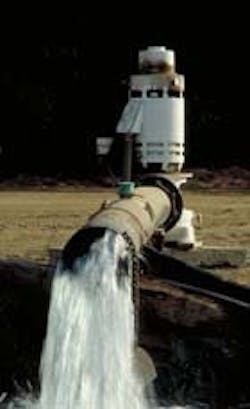More Restrictions on Pumping Water from Northern California
Source Los Angeles Times
Federal wildlife officials released new restrictions on pumping water from Northern California on Dec. 15, further tightening the flows to Southern California cities and San Joaquin Valley farms, the Los Angeles Times reported.
The restrictions are intended to protect the tiny delta smelt from extinction and stem the ecological collapse of California's water crossroads, but could eventually cut state water deliveries by half.
The Sacramento-San Joaquin River Delta is the smelt’s only home, and a major source of water for many Californians. The cutbacks will vary depending on conditions in the delta.
The smelt protections will typical slash California State Water Project deliveries 20% to 30% per year—essentially maintaining the level of cuts ordered this year by a federal judge. But under the worst conditions, deliveries could be cut 50%.
According to Snow, the federal action placed too much of the blame for the smelt's problems on the huge delta pumps that send water south, the newspaper reported.
Other conditions such as chemical contamination, invasive species, power plant operations and climate are all hurting the delta, state water resources director Lester Snow said.
Pumping has altered the hydrology and salinity of the delta, federal scientists say, and as a result, its suitability as a wildlife habitat. Also, the pumps can be so powerful that they reverse delta water flows, carrying fish to the pumps.
The U.S. Fish and Wildlife Service issued a new biological opinion, containing the restrictions. The 410-page document deals with the operation of California's two biggest water systems, the federal Central Valley Project and the State Water Project.
"This is a major new reduction in water deliveries that will impact families, businesses and farmers throughout California," said Laura King Moon, assistant general manager of the State Water Contractors.
"We need to make a fundamental change in how we see and use water," said Doug Obegi, an attorney with the Natural Resources Defense Council, one of the groups that filed the smelt lawsuit. "There are a ton more opportunities in water conservation, improved groundwater management, water recycling and design that captures storm water."
Source: Los Angeles Times
